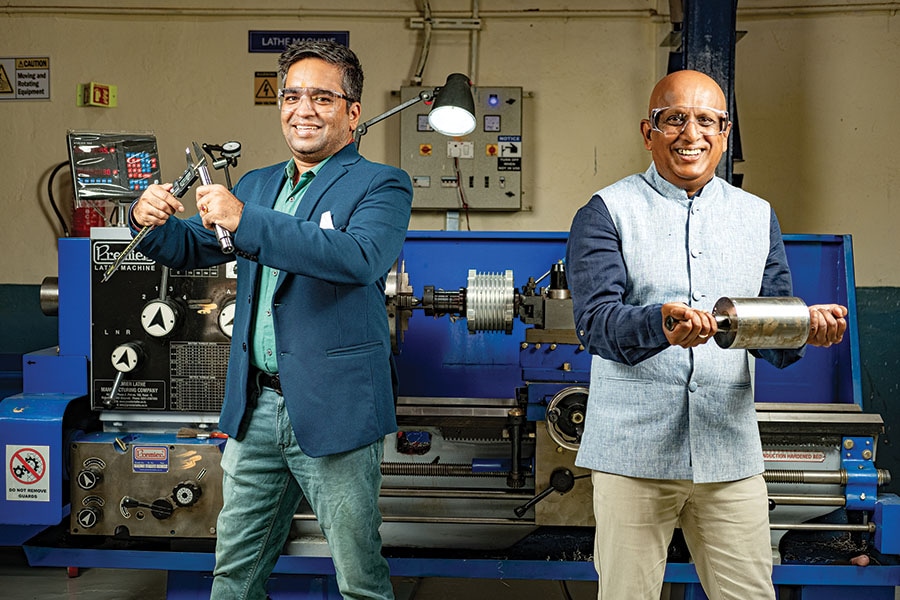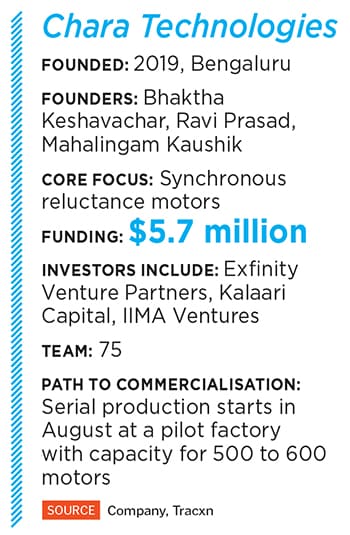
Chara Technologies: Building motors sans rare earth metals
Three entrepreneurs are developing a class of synchronous reluctance motors that can power EVs to tillers
 Bhaktha Keshavachar (right) and Mahalingam Kaushik, co-founders at Chara
Image: Neha Mithbawkar for Forbes India
Bhaktha Keshavachar (right) and Mahalingam Kaushik, co-founders at Chara
Image: Neha Mithbawkar for Forbes India
When Bhaktha Keshavachar, co-founder and CEO of Chara Technologies, sat down with this writer for the first time, last December, it was at a startup conference at the IIM-Ahmedabad’s Centre for Innovation Incubation and Entrepreneurship, now referred to as IIMA Ventures. “We are grey-haired or even hairless founders,” he joked, referring to how his two fellow founders of the Bengaluru company and himself don’t fit the stereotype of two youngsters fresh out of college.
Keshavachar started his career with Sharp Laboratories in the US almost 30 years ago. He spent more than 12 years at Intel before turning serial entrepreneur. His latest venture before Chara was co-founding Ezetap Mobile Solutions, which was acquired by Razorpay.
Ravi Prasad, Chara’s co-founder and chief motor designer, was previously head of motor design at Kirloskar Motors and founder of a motor design consultancy that built specialised motors for large multinational customers.
 Mahalingam Kaushik, co-founder and CTO, brings his embedded electronics wizardry to Chara and is responsible for much of the intellectual property the startup has generated.
Mahalingam Kaushik, co-founder and CTO, brings his embedded electronics wizardry to Chara and is responsible for much of the intellectual property the startup has generated.
(This story appears in the 12 July, 2024 issue of Forbes India. To visit our Archives, click here.)


















